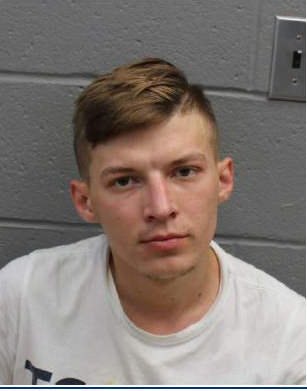By DAMIEN FISHER, InDepthNH.org
The identities of the 12 jurors who found Volodymyr Zhukovskyy not guilty in the fatal crash that took the lives of seven motorcycle riders will remain secret despite attempts by the Boston Globe to unseal the names.
Coos Superior Court Judge Peter Bornstein ruled this week the jurors are entitled to keep their identities private, in part, because of the threats and intimidation that followed the verdicts in August. Among those Bornstein cited as engaging in this intimidation is Gov. Chris Sununu and Attorney General John Formella.
“This is a case in which at least some persons who followed the trial were clearly angry after the foreperson read the verdicts and those persons may well have felt justified in their anger upon learning of the statements from two of the highest-ranking officials in state government,” Bornstein wrote. “Therefore, the jurors fear for their physical safety if their names and addresses were disclosed is reasonable.”
The jury found Zhukovskyy, 26, not guilty on seven counts of manslaughter by reckless conduct, seven counts of negligent homicide, and one count of reckless conduct with a deadly weapon. An additional eight charges had already been dismissed part way through the trial after the defense team argued the state did not have enough evidence to support the charges.
Sununu and Formella’s statements, issued soon after the verdicts were reached, have been criticized as being damaging to the jury system. Bornstein included the full statements in his order.
Sununu’s statement: “The Fallen Seven did not receive justice today, and that is an absolute tragedy,” said Sununu. “I share in the shock, outrage, and anger that so many have expressed in the three years since the seven members of the Jarheads Motorcycle Club were taken from us. My heart goes out to their families, friends, and loved ones on this especially dark day.”
Formella said: “Our hearts go out to the victims and their families. Our trial team did an excellent job and we firmly believe that the State proved its case beyond a reasonable doubt,” said Formella. “Mr. Zhukovskyy should have been found guilty of the charges in this case and held responsible for causing seven deaths and numerous injuries. We thank the Court and the jurors for their service, and while we are extremely disappointed, we respect the verdict and our system of justice.”
According to attorney Philip Waystack, who Bornstein appointed to represent the court in the Globe’s motion, Sununu and Formella’s statements caused concern for individual jurors, as well as stoking fears about their personal safety. One juror told Waystack they would not serve on a jury again after Sununu and Formella’s statement, and another said the statements would have a chilling effect on potential jurors.
Still other jurors told Waystack they were afraid in the days after the verdict, with one shutting down their social media account. Another took more extreme measures.
“At least one juror was so concerned for his/her physical safety that he/she began to carry a pistol for personal protection,” Bornstein wrote.
The jury members were already on edge before Sununu and Formella spoke, as someone in the courtroom told them “may you burn in Hell,” the day the trial ended.
Bornstein found that while jury information can, at times, be made part of the public record, as Globe attorney William Chapman argued, such lists belong to the court system’s administrative documents necessary for operation. That means they are not automatically in the sphere of documents the public has an automatic right to access, Bornstein wrote.
Aside from the immediate threats the jurors in the Zhukovskyy case are facing, releasing the names could have a negative impact on the whole jury system, Bornstein wrote. He writes that making juror identities public, it opens up jurors in future high-profile cases to threats and intimidation.
Keeping the names secret does not impinge on the Globe’s right to pursue its reporting, Bornstein wrote. The Zhukovskyy jurors by now know the Globe wants to interview them, and can reach out if they so choose.
Zhukovskyy, a truck driver from Springfield, Mass., admitted to police he had used heroin on the day of the crash. He reportedly lost control of his tractor trailer on Route 2 near Gorham when he plowed into several members of the Jarheads Motorcycle Club coming in the opposite direction. Seven of the motorcycle riders were killed in the wreck.
At trial, facts were presented that while Zhukovskyy had used drugs eight hours before the crash, he was not intoxicated at the time of the accident. Instead, the lead rider for the Jarheads, Albert “Woody” Mazza, was found to be intoxicated with a .135 blood alcohol content percentage. Other Jarheads were also found to be intoxicated at the time of the crash. The defense suggested Mazza led the Jarheads on a dangerous ride, and that he crossed the centerline and hit Zhukovskyy’s truck, causing the accident.
Along with Mazza, the crash killed Michael Ferazzi, 62, of Contoocook, Desma Oakes, 42, of Concord, Aaron Perry, 45, of Farmington, Daniel Pereira, 58, of Riverside, Rhode Island, Jo-Ann and Edward Corr, both 58, of Lakeville, Mass.
Zhukovskyy is currently in custody as he faces deportation back to his native Ukraine.





